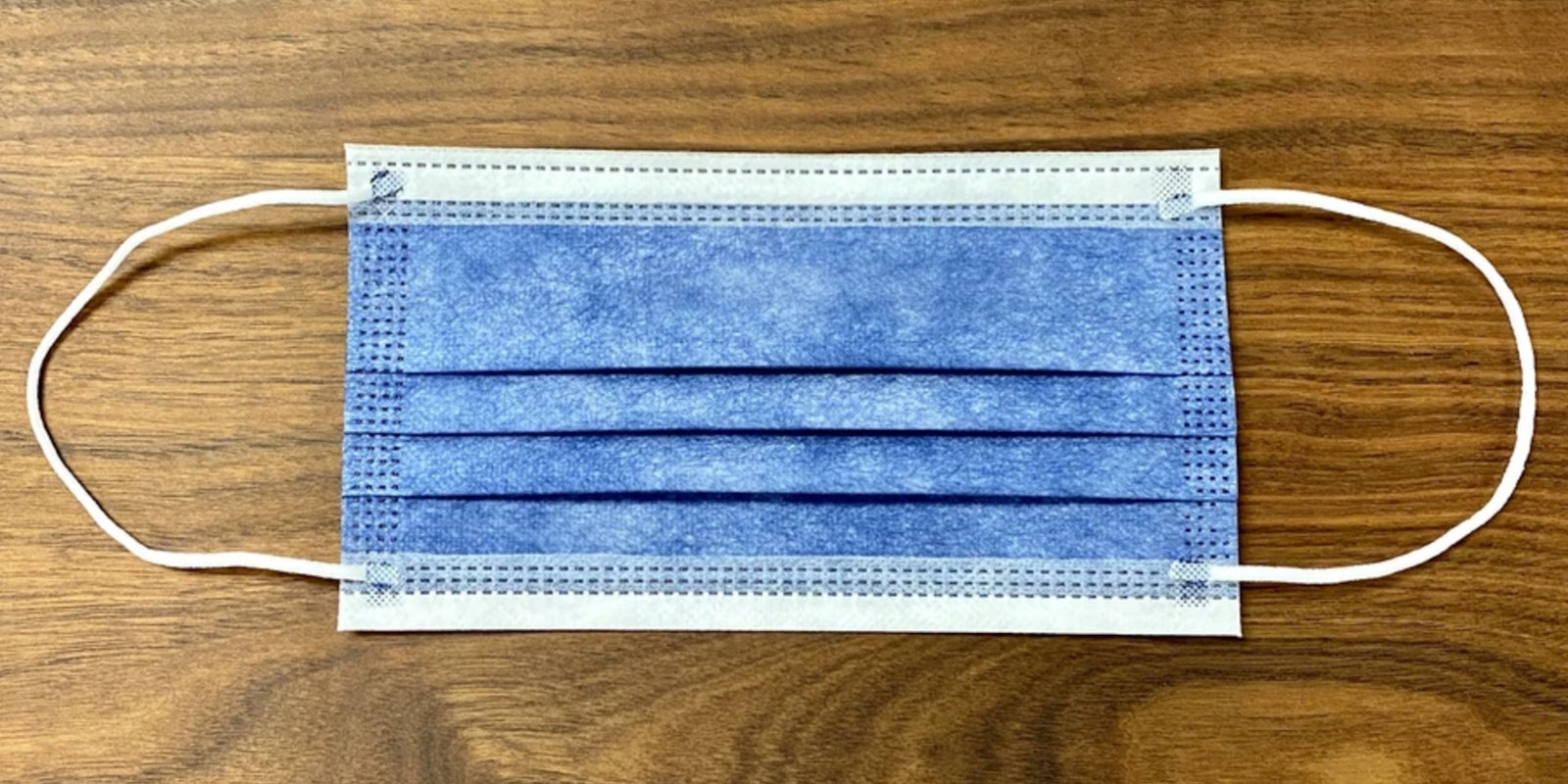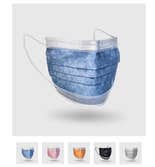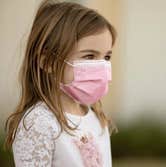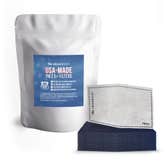Presented by Armbrust USA
The first wave of the pandemic depleted the global supply of medical face masks. American companies have ramped up production in an effort to meet the growing demand. Domestic PPE manufacturers like 3M and Kimberly-Clark have overhauled production lines to pump out more masks. But not all of the companies are willing or able to sell masks directly to consumers. And we already know that Amazon isn’t the most reliable source for reputable products––especially face masks.
So where can a consumer find face masks made in the USA?
Knowing which manufacturer is producing your mask is just as important as wearing one. But it’s equally important to consider what materials are in the mask too.
“The problem in the U.S. is people simply just don’t know that all reputable masks need to be tested,” says Lloyd Armbrust, founder of Texas-based mask manufacturer Armbrust American. Currently, Armbrust is one of the only U.S. companies manufacturing FDA-registered surgical masks and selling directly to consumers. They provide inventory for medical facilities as well.
“When you register a surgical mask with the FDA, you must submit a third-party lab test that confirms your masks are filtering at a minimum rate of 98%. This is a time-consuming process that costs tens of thousands of dollars.”
FDA registration is the only way to know for certain the masks you’re wearing are safe and effective. But marketing on non-regulated masks can be misleading. And when it comes to choosing PPE in a global pandemic, that deception can be dangerous.
The FDA has received at least 37 reports about malfunctions and injuries stemming from masks, according to an NPR analysis. The data was provided by Device Events, a website that tracks the FDA’s medical device adverse event data. This analysis uncovered issues with surgical masks, N95 respirators, KN95 respirators, and face shields. “Reports cite masks with holes, mold, disintegrating ear loops, and made of the wrong materials. Five include allegations that sellers falsely told them their products had the FDA’s OK.”
More of these bootleg masks are now sitting in a warehouse somewhere. Or worse, relabeled and made available by third-party distributors looking to profit off misinformation. Due to a worldwide PPE shortage, medical facilities are desperate for effective protection. The FDA has issued an emergency use authorization (EUA) making it easier to obtain protective medical gear that might otherwise be outside of its normal standards. That provides questionable manufacturers with even more opportunities to market their products in a way that skirts the rules.
If a state government could potentially make this kind of mistake when purchasing PPE for a hospital, it’s likely that private consumers trying to protect themselves are falling into the same misinformation trap.
Types of medical masks and how they work
Many listings for masks on Amazon refer to anything that covers your nose and mouth as a “face mask.” However, distinctions are necessary when discussing medical PPE. An important part of the regulation process is categorizing masks.
Reputable FDA-listed masks must go through a series of tests. These include fluid resistance, filtration efficiency of both particles and bacteria, flammability, and biocompatibility. But each type of mask has different expectations to meet. This determines how effective they are in specific scenarios.
Surgical face masks
Surgical masks are made out of non-woven polypropylene plastic and use elastic ear loops to stay on a person’s face. This gives them a slightly looser fit than N95 masks that tie around the back of the head. The outer fibrous, non-woven plastic fabric layers, called spunbond, are breathable and resistant to tears. Surgical masks create a barrier that prevents the spread of viral particles from or by the wearer. This is thanks in part to the middle layer of fabric called meltblown. The nose wire, a flexible plastic-coated metal strip in the lining, creates a seal around the nose and mouth.
Though they look identical to the disposable masks stocked on big-box retailers’ shelves, all surgical masks are regulated by the FDA. The masks you see at retail stores are not the same as surgical masks and do not require FDA regulation. Surgical masks must be able to withstand medical use. This is why you’ll never see “surgical mask” or “intended for medical use” on any bootleg brand’s listing.
If that’s confusing, let us make it easier for you. For the most effective, properly regulated surgical mask, make sure it is labeled as a level II or level III mask. If you’d like to verify further, try to find the manufacturer on the box. Once you do, to confirm that they are on the FDA list.
The FDA requires testing for surgical masks to ensure they block large-particle droplets, splashes, sprays, or splatter that may contain viruses and bacteria. This keeps them from entering your nose and mouth. Surgical masks may also help reduce the spread of your saliva and respiratory secretions to others.
N95 respirators
N95 respirators are currently the most sought-after protective devices. However, regulatory agencies still recommend reserving them for health professionals who need respiratory protection. These masks require the highest amount of clearance. The FDA registers N95 respirators to sell in the U.S. Then a department within the CDC called the National Institute for Occupational Safety and Health (NIOSH) tests and certifies them. Like surgical masks, N95 respirators are made of the same protective materials.
Aside from clearances, the most notable difference between surgical masks and N95 respirators is their fit. Due to the elastic bands wrapping entirely around the head, N95 respirators achieve a tighter facial fit when worn properly. This provides superior protection for those in close proximity to contaminants.
Despite their differences, N95 respirators and surgical masks go through similar processes for approval from regulators. Though surgical masks are not NIOSH-certified. The FDA recently passed an emergency use authorization (EUA) for medical workers unable to get N95s to use surgical masks instead.
KN95 masks
While KN95 face masks seem similar to N95 respirators, they’re not equivalent. KN95 masks differ from N95 respirators for several reasons. KN95 is a non-scientific marketing term used by Chinese manufacturers to sell their own standard of masks.
KN95s bypass the Fit Testing requirement. The FDA has yet to determine if they’re a safe alternative to N95 respirators. The FDA includes certain KN95 masks in its EUAs. However, since it is not possible to determine if these masks will filter out 98% of particulate matter (unless you have a $100,000 machine to test) they really are for emergency use only. (You know, like a global shortage of PPE.) In fact, the FDA had to remove a large number of manufacturers from its EAU after quality testing revealed that 60% of KN95 masks provided far lower filtration effectiveness. Sometimes it’s as low as 30%, which is less protection than cloth face coverings.
Where to buy FDA-Listed Face Masks Made In USA
Armbrust American hopes to help in the fight against bootleg mask companies by manufacturing millions of masks for hospitals, healthcare workers, and the general public. Armbrust produces ASTM Level III-certified surgical masks in different colors and packages. These rigorously tested masks comply with all regulatory standards. The ASTM Level III rating is ideal for procedures that involve low to moderate amounts of fluid, spray, and/or aerosols. This makes their surgical masks one of the best options for everyday, non-medical use.
Check out Armbrust Masks here.
The Daily Dot may receive a payment in connection with purchases of products or services featured in this article. Read our Ethics Policy to learn more.






